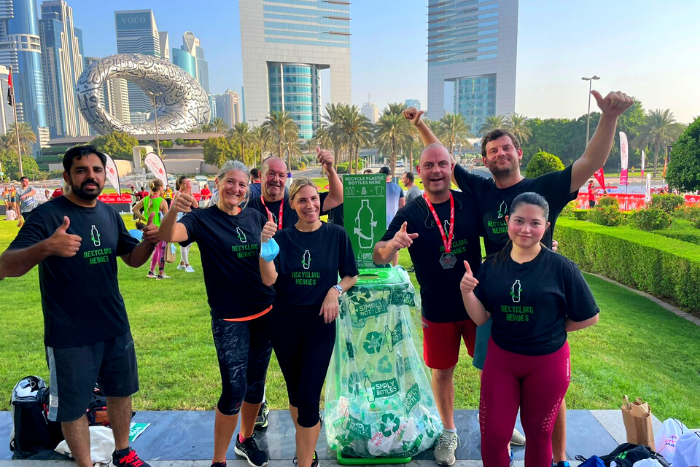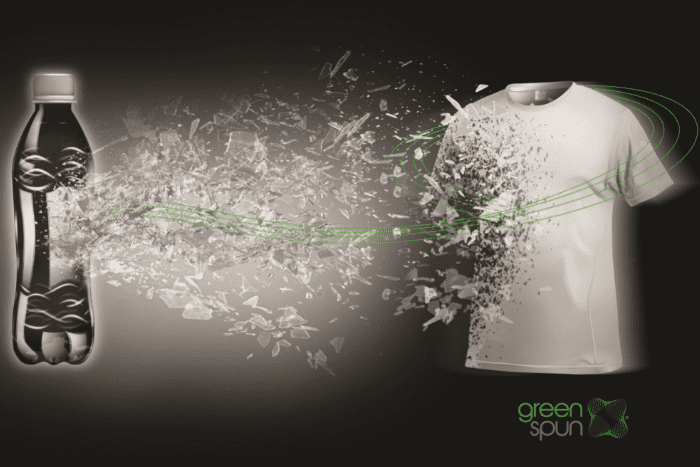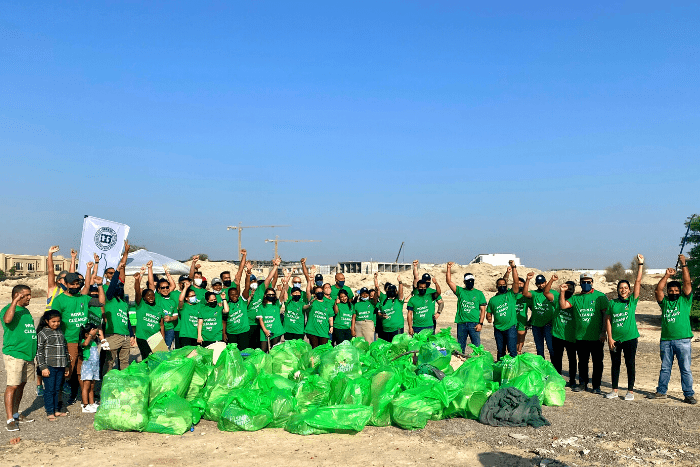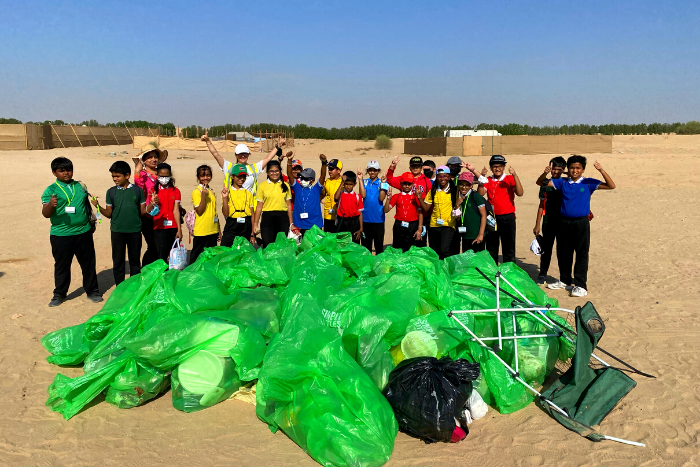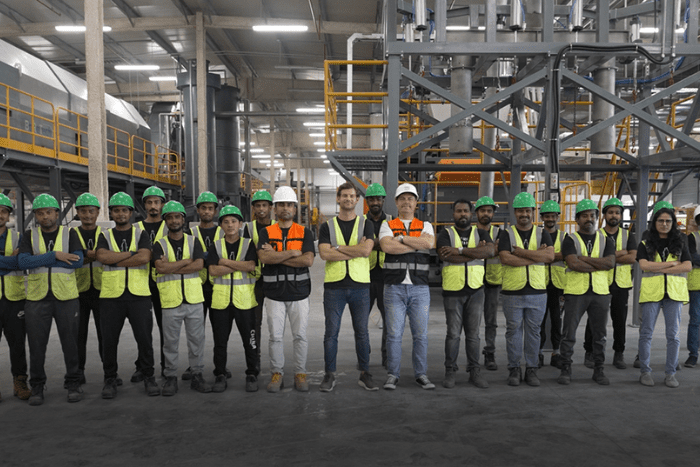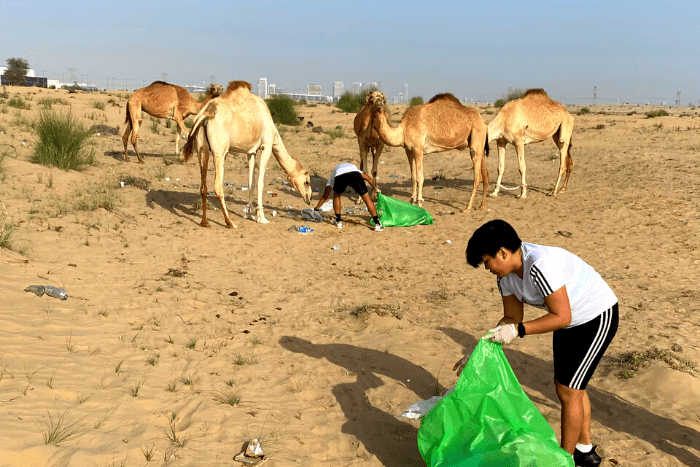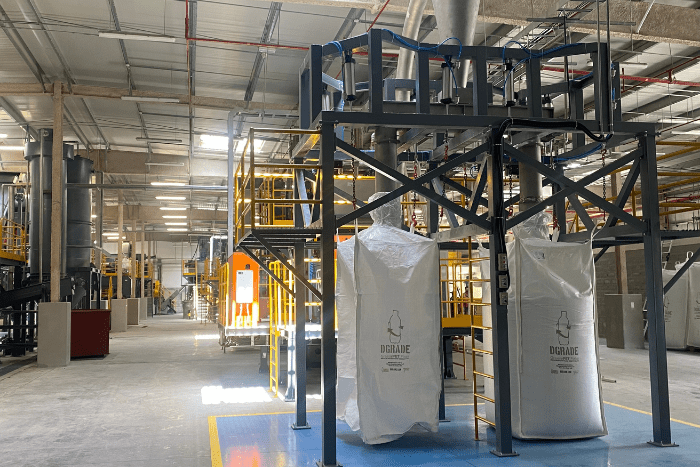Making plastic fantastic with serious style.
“We don’t really see ourselves as a recycling company so much even though we are sat in this lovely recycling factory,” says Emma Barber, Managing Director of DGrade.
The statement sits at odds with the fact that DGrade recycles enormous amounts of PET 1 plastic – a clear plastic most commonly used for water bottles – at its recycling factory located in Khalifa Industrial Zone Abu Dhabi (KIZAD).
“We see ourselves as a textile company; we are repurposing the polyester in the PET,” says Emma who adds how DGrade, which was established by her husband and CEO, Kris Barber, is known for recycling plastic into sustainable clothing.
With a conventional manufacturing background, Emma and Kris decided in 2010, when Kris first arrived in the UAE, that he would switch to become completely sustainable. “This was for a number of reasons, partly because of the amount of plastic pollution in the region and also Kris saw that the future was going to be a lot more sustainable; he’s always been very entrepreneurial and saw that opportunity.”
The 4,000 square metre facility will process up to one billion plastic bottles a year, which according to Emma is 25 per cent of the total production of plastic bottles in the UAE. “About 80 per cent of the plastic flakes will go back into making packaging and 20 per cent of the flakes will go back into the making of textiles, both of which are exported around the world.”
To create Greenspun™, the trade name of the yarn used to create textiles, the washed flakes are then heated and extruded into fibre and spun into recycled 100 per cent polyester yarn to create eco-friendly products. Greenspun® yarn can then be woven or knitted in the same way as conventional polyester yarn to produce more than 200 types of fabric, including manufacturing the uniforms for the staff at Yas Marina Circuit.
Collecting plastic bottles for recycling purposes is not as easy it sounds, considering the amounts of bottles one sees, but to help do this, DGrade set up an initiative entitled Simple Bottles. “We work with business and schools to try increase segregation and collection rates.”
Emma shares how there is a lot of cynicism and a lack of education about recycling. “People don’t really believe that it is worth putting a bottle in the right bin because they don’t believe that it is going to be recycled. And people don’t know much about the facts about plastic and that it is actually a green packaging option.”
To educate and create awareness, DGrade set up in 2017 the Simple Bottles Schools Programme, which, at the time, involved 20 schools. “The programme is completely free and the largest outreach programme of its kind in the Middle East; we have won loads of awards for it.”
Today, there are more than 200 schools involved, with around 350,000 school children involved. “We have full time staff who go into the schools and run competitions, challenges, work with the green teams, and even have an eco-ambassador in every school.”
The Simply Bottles Recycling for Schools Programme educates, engages and equips children to recycle plastic water bottles which can be processed into uniforms, PE kits and accessories. By participating in this initiative, schools will help children better understand the impact of plastic pollution and the benefits of recycling.”
We want to get the children really behind the recycling; the way to do that is to incentivise them so the competitions are a really important way to get the children to think about the different things they can do to recycle plastic into different products.
“Each term there is also a different recycling challenge and this really helps to create awareness and action well into the future.”
For more information contact [email protected]

